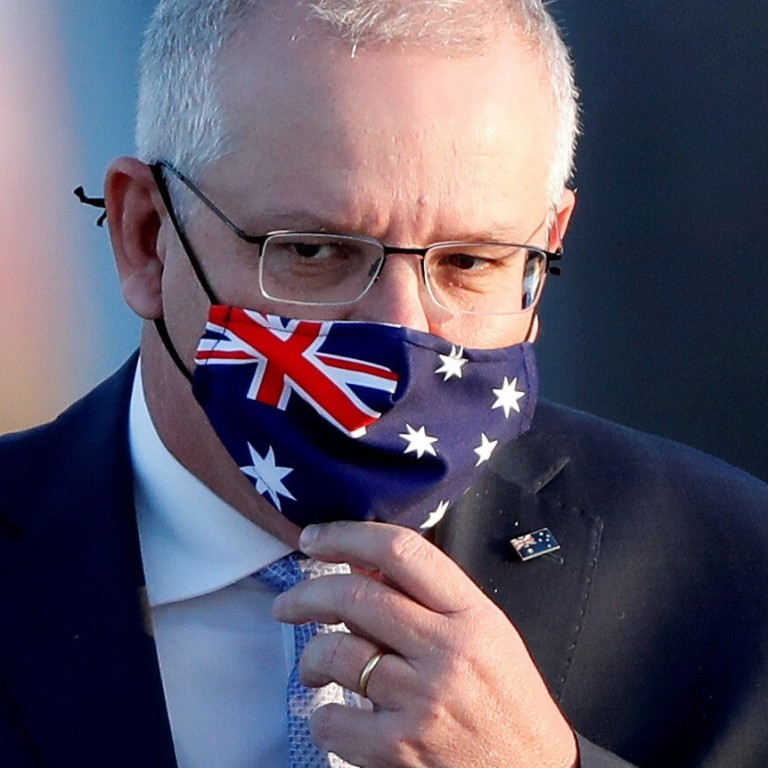
Is China using its clash with Australia as a warning to the world?
- Beijing’s use of trade as political payback against Canberra is seen as showing the consequences of opposing China’s interests
- But observers say that while Australia should not back down from its core interests, it can tone down its rhetoric and choose dialogue with Beijing
Last month, it released a dossier outlining 14 grievances that had “poisoned” relations – including the call for an inquiry, “antagonistic” media reports about China, and Canberra’s statements of concern about Hong Kong and Xinjiang – cementing widespread assumptions that Beijing was engaging in political retaliation.
Australia, a close ally of the United States, sends about 40 per cent of its exports to China, with two-way trade in 2019-2020 worth about A$240 billion (US$177 billion).
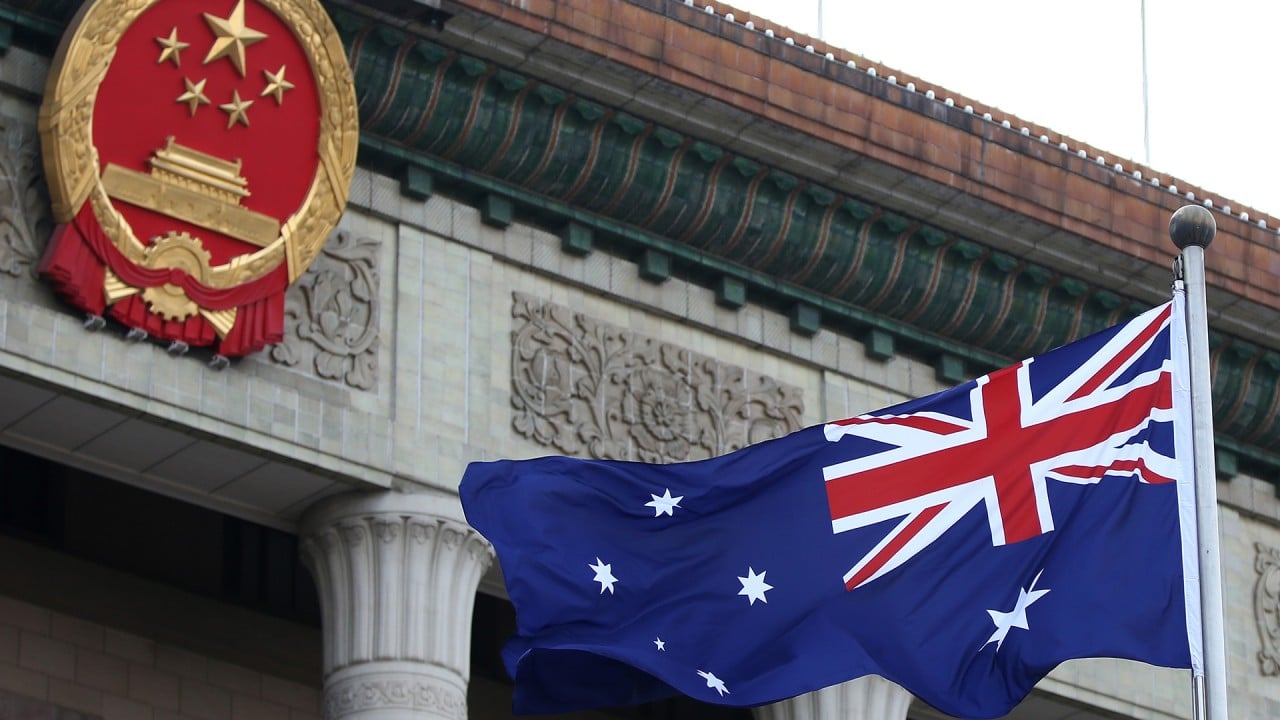
07:55
Australia ditched diplomacy for ‘adversarial approach’ to China and ‘a pat on the head’ from US
Beijing has denied any responsibility for the deteriorating relationship, calling on Canberra to “face up to the crux of the setback in the bilateral relations” and make “independent, objective, sensible choices that serve its own interests”.
Prospects for a thaw have dimmed further in recent days amid an escalating war of words that erupted after Chinese Foreign Ministry spokesman Zhao Lijian posted on social media a photo illustration of an Australian soldier holding a knife to the throat of an Afghan child, drawing condemnation from Australia, the US, New Zealand and France.
Malcolm Turnbull, who served as Australia’s prime minister from 2015 to 2018, said Beijing’s listing of complaints with Canberra left no room to back down or compromise.
China does not want a rupture and will begin to climb down when it sees Australia climbing down
Turnbull said countries across the region would be “taking careful notes” about Australia’s experience, and suggested Beijing’s aggressive tactics and rhetoric contributed to its plummeting image overseas.
“I’m sure in Beijing they blame that on everyone else, but if you go around threatening people and throwing your weight around, it’s not a way to win friends,” he said.
‘WARNING LIST’
Many observers see Beijing’s tactics as a means of signalling to other countries, including Canada and the European Union, the consequences of opposing what China sees as its core interests.
“If you consider China’s ‘14 grievances’ list, it’s obvious these are not realistic ‘demands’ that China expects Australia to enact,” said Jeffrey Wilson, research director at the Perth USAsia Centre, who estimates Beijing has put about US$40 billion of Australian exports at risk.
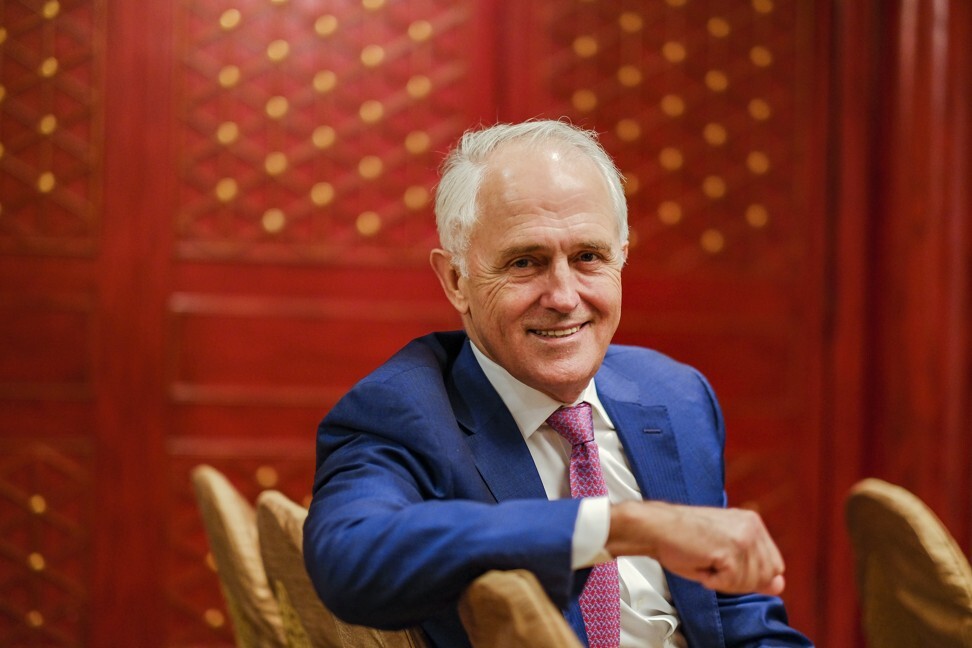
“Instead, it is a ‘warning list’ designed for other countries that telegraphs the foreign policy behaviours that China may punish economically. In other words, Australia is being targeted because it is a convenient country to make an example of to others.”
Last week, Tom Tugendhat, who chairs the British parliament’s Foreign Affairs Select Committee, said in an interview with Australian media that Beijing’s list served as a “wake-up call” to other countries and was viewed within the British government as an “extremely aggressive act”.
Urging international solidarity, the Inter-Parliamentary Alliance on China, which is made of more than 200 MPs from 19 countries, launched a campaign asking consumers to buy Australian wine, which Beijing last week hit with tariffs of up to 212 per cent.
Strong-arming Australia only damages China’s standing: ex-PM Turnbull
On Tuesday, the White House National Security Council announced in an irreverent post on social media that Australian wine would feature at an upcoming holiday reception, quipping that it was a “pity vino lovers in China” would miss out.
Although Australia‘s economy has been hit with especially wide-ranging sanctions, its experience will be familiar to governments in the Asia-Pacific. Japan, South Korea and the Philippines – all US allies that do most their trade with China – have all found themselves on the receiving of apparent economic retaliation by Beijing in recent years.
Shin Oya, a senior consulting fellow at Asia Pacific Initiative, a Tokyo-based think tank, said Japan had vivid memories of Beijing blocking Japanese exports of rare earths in 2010 amid a spat over the detention of a Chinese fishing trawler captain.
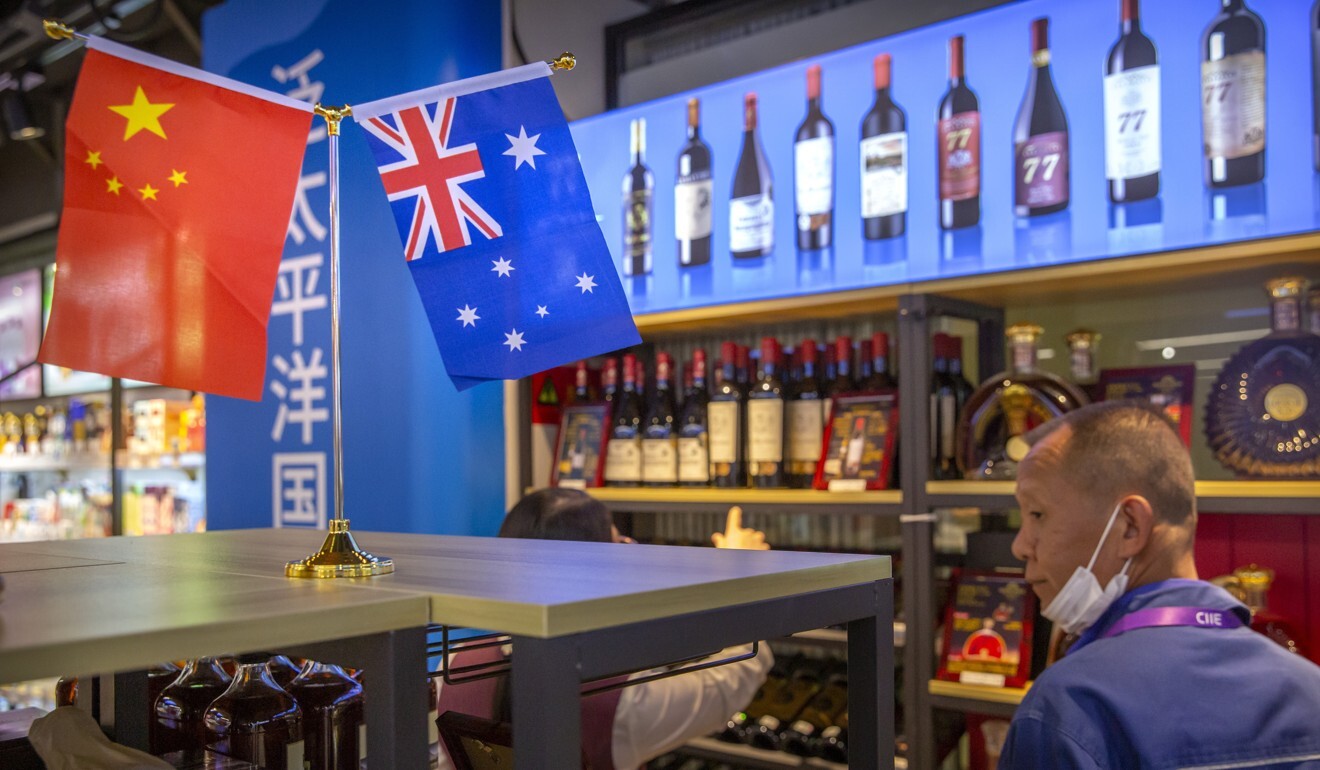
He said countries like Japan, which signed a landmark defence pact with Australia last month, needed to push back against Chinese pressure tactics in the spirit of international cooperation and solidarity.
“Standing with Australia is not just for Australian people, but for all people who believe in rule of law and the world free from economic coercion,” Oya said.
Shin Kak-soo, a former diplomat who served as South Korea’s ambassador to Japan and Israel, said Australia’s situation would resonate in Seoul after Beijing in 2017 targeted the country’s tourism industry in apparent retaliation for its deployment of the US missile-defence system THAAD.
‘Put away the megaphone’, ex-Australia PM Rudd tells both Beijing and Canberra
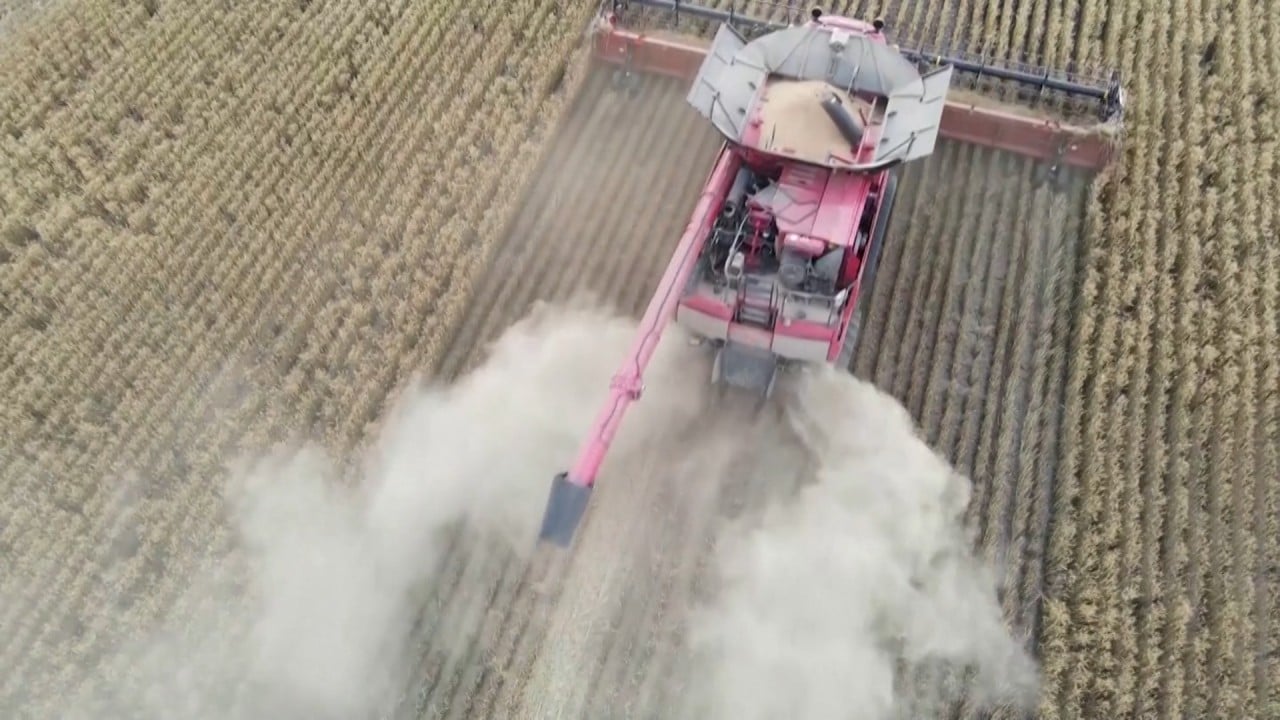
01:15
China-Australia trade: Beijing set to ban nearly US$400 million worth of Australian wheat imports
Bilahari Kausikan, Singapore’s former ambassador to the United Nations and Russia, said Beijing wished to see if it could break Australia’s political will, which would “sow doubt across the Indo-Pacific in all of America’s friends and allies”.
“If Australia bows to Chinese pressure, everyone will take note and reconsider their own position,” Kausikan said.
But the veteran diplomat noted that he could not think of a single example of where such economic coercion had changed a developed country’s behaviour.
“So keep calm and stand firm on matters of principle and core national interests,” Kausikan said. “Nobody should go around poking China in the eye just to see what happens, but draw clear red lines and stick to them.”
An all-out trade war with China would cost Australia 6 per cent of GDP
TIME FOR SELF-REFLECTION?
But there is a school of thought that says Australia has handled relations with China with poorly, pointing to Asian countries – including US-allied liberal democracies such as South Korea and Japan – that have been able to maintain much warmer ties despite their differences.
Former Australian prime minister Kevin Rudd this week told the China Conference: United States organised by the South China Morning Post that Canberra should “put away the megaphone” and learn from the diplomatic approach of Japan, which has an ongoing territorial dispute with China over the Diaoyu/Senkaku Islands.
“Australia has fewer substantive disputes with China than many other Asian countries, but in recent years, under prime minsters Malcolm Turnbull and Scott Morrison, it has chosen to criticise China in a more high-profile way than any other country in Asia,” said Hugh White, a former Australian defence official who is now a professor emeritus at the Australian National University.
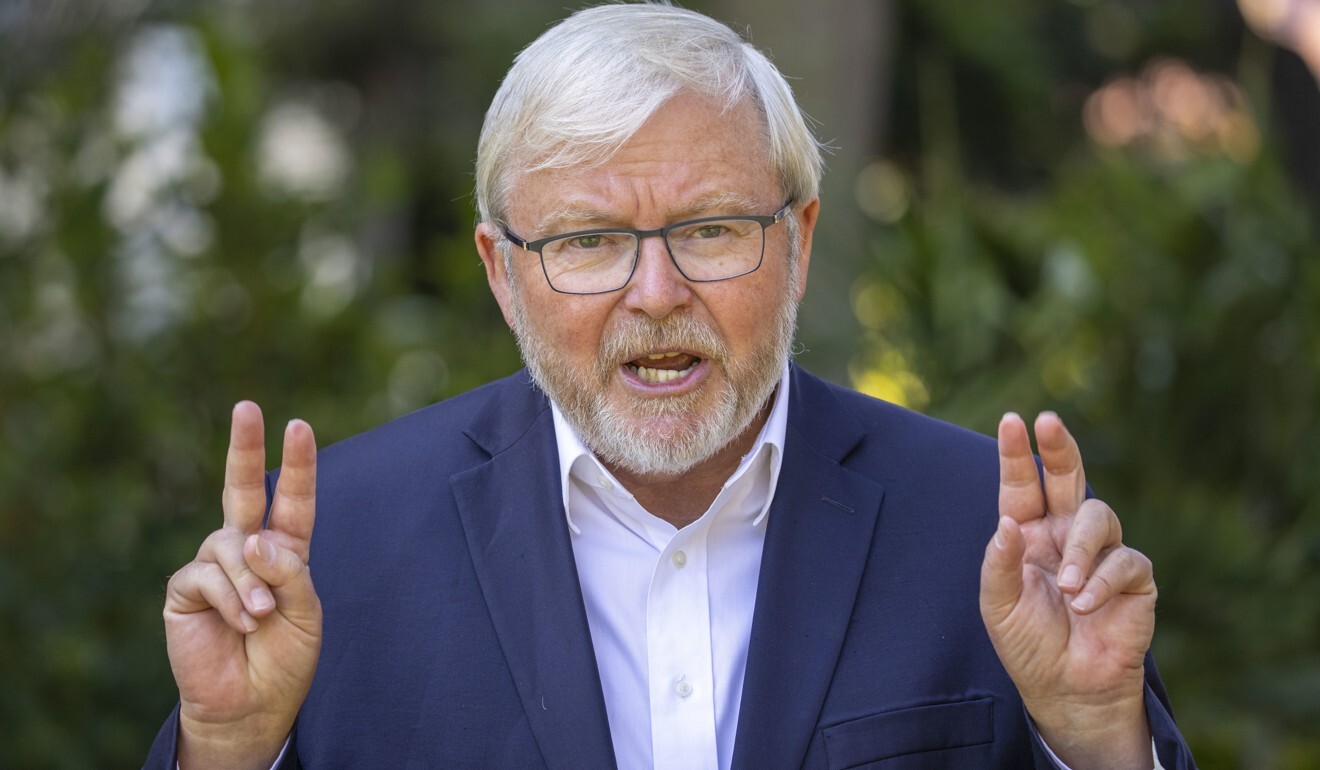
White said Canberra should have been able to pursue its key policy interests without “provoking Beijing as overtly as it has done”.
“I think Australia will have won little respect from other Asian leaders who understand more clearly that China has to be handled carefully,” he said. “There may well be a sense that, yet again, Australian leaders fail to understand how things are done in Asia – that blunt speaking may sell well at home but it does not get results.”
Shin Jung-seung, South Korea’s ambassador to China from 2008 to 2009, said that while China posed a “serious threat” to Asia’s economies as it grew stronger, other countries “looking at Australia’s judgment would think it hadn’t gained anything worthwhile” through its actions.
WeChat blocks Australia PM’s message over China’s war crimes tweet
George Yeo, who served as Singapore’s minister of foreign affairs from 2004 to 2011, said countries around the region watching the tensions were “surprised” that Australia had let relations sink so far.
“China’s recent actions against Australia are in response with what it perceives as gratuitous moves by Australia against China which go beyond Australia’s own national interest,” said Yeo. “It sees Australia allowing the US to have disproportionate influence on its security-intelligence-political establishment and media.”
Yeo said Beijing had “limited” objectives in terms of shaping Australia’s behaviour.
“What it seeks is a more balanced Australian position,” he said. “China does not want a rupture and will begin to climb down when it sees Australia climbing down. It sees Australia’s dependence on the China market as its trump card.”

03:39
Australia’s last two accredited journalists in mainland China evacuated as diplomatic ties worsen
Some Australian industry figures, too, have questioned Canberra’s handling of the tensions, even as the prominent Australia China Business Council (ACBC) this week insisted Australia “cannot and will not buckle to strong-arm tactics”.
Daryl Guppy, president of the ACBC’s Northern Territory branch, said it was “not what you say, but how you say it that is important”.
“Australia’s concerns are valid, but they could have been delivered in a more diplomatic fashion and achieved far better outcomes,” said Guppy, who stressed that he was speaking in a personal capacity.
“Many in the business community question the wisdom of Australia’s early loud demands for an international inquiry into the source of Covid-19 when such an inquiry is routinely undertaken by the World Health Organization.”
Guppy said the Australian government should dial down “loudmouth, unbalanced and ill-informed rhetoric,” call out biased or unbalanced media reports and make better use of diplomacy.
While views differ on apportioning blame for the downward spiral in Sino-Australian relations, there is widespread agreement on the need for dialogue, including among voices highly critical of Beijing‘s recent behaviour.
“The restoration of calm and respectful dialogue is the way to go,” Turnbull said. “That’s what’s needed and each side should – and this applies to relations with all countries – should be careful not to overreact to slights real or imagined.”

